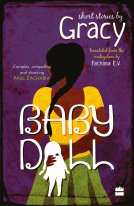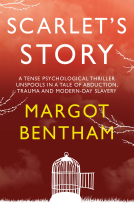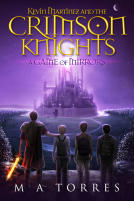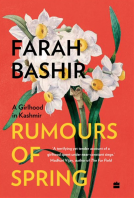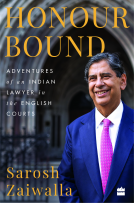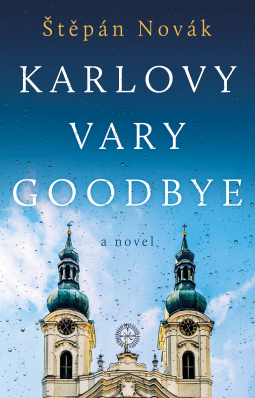
Karlovy Vary Goodbye
by Štěpán Novák
This title was previously available on NetGalley and is now archived.
Send NetGalley books directly to your Kindle or Kindle app
1
To read on a Kindle or Kindle app, please add kindle@netgalley.com as an approved email address to receive files in your Amazon account. Click here for step-by-step instructions.
2
Also find your Kindle email address within your Amazon account, and enter it here.
Pub Date Jan 28 2022 | Archive Date Mar 03 2022
The Book Guild | Book Guild Publishing
Talking about this book? Use #KarlovyVaryGoodbye #NetGalley. More hashtag tips!
Description
It is summer of 1938, in the Czech spa town of Karlovy Vary.
Life for the Dusek family – and their six-year-old son Jan – has been stable, unhurried, and full of promise.
But times are changing. An idyllic childhood gives way to impending invasion and looming war. Jan’s parents choose to leave everything behind, to face an uncertain future.
A following vivid and hazardous journey across Europe is often seen by Jan as an adventure rather than a danger. The family settle in England just two weeks before the start of World War Two, ready to put the past behind them as they build a new life in a new land.
It is summer of 2019, as Jan returns to Karlovy for the first time in 80 years.
An International Film Festival is in progress. How much more has the world changed? What remains the same? What other timeless and terrible challenges will bring about further immigration, settlement and belonging? Can the only strengthening shield be the power of love?
A Note From the Publisher
Available Editions
| EDITION | Ebook |
| ISBN | 9781915122612 |
| PRICE | $5.99 (USD) |
| PAGES | 224 |
Featured Reviews
I really enjoyed this book it was captivating and engaging and I couldnt stop reading. It was both heartwrenching and heartwarming in equal measure and was so beautifully written. I feel in love with Jan who has a special place in my heart and I also adored several of the other characters. This was such a good read.
Here is a stark reminder that history has a nasty way of repeating itself: the 1938/9 German invasion of Czechoslovakia opens the story, and as I read it the news is full of the Russian invasion of Ukraine.
Although written as a novel this is almost pure autobiography as the author witnesses the changing world around him. It is poignant and compelling and reveals many personal triumphs wrought from the tragedies of war and exile.
 Reviewer 494896
Reviewer 494896
Karlvory Vary Goodbye is a beautiful book following Jan when he left Kalvory Gary a town he's known for a while to get away from the Nazi's. I really loved reading this book. The writing and How it was divided.
It's really an amazing, enlightening book you have to pay attention to
Thanks to the publisher, author and netgalley for the arc.
A lovely WW2 story told from a different perspective, that of a Czech family. Well written and easy to read.
I’d been wondering throughout my reading of this novel if it’s actually an autobiography or memoir in disguise. Reading the author’s short biography, it’s not difficult to find parallels between Stepan Novak and our main character in this story, Jan Dusek, who had to leave his hometown of Karlovy Vary at the age of six in 1938 following the Munich Agreement that ceded parts of Czechoslovakia called Sudetenland to Nazi Germany. The novel follows two alternating timelines, with the first half documenting the life of Jan between 1938-1950 after his flight until he settled with his parents in England as ‘friendly aliens’, whereas the second half focuses on Jan’s journey in 2019 returning to Karlovy Vary as an aged British citizen in his 80s.
The novel takes Karlovy Vary as both the start and the end of Jan Dusek’s journey. The place is a spa town with numerous hot springs and had become a place of retreat for centuries, with its name that originated from Charles IV, the first King of Bohemia who became the Holy Roman Emperor in the fourteenth century. Its geographical location also marks its ambiguous identity, as Karlovy Vary had more German population than Czechs from the twelfth century up until the end of the Second World War. A 1930 census gave the statistics of the city’s inhabitants as 20,856 were of German ethnicity, 1,446 of Czechoslovak ethnicity (Czech or Slovak), along with few Jewish, Hungarian and Polish ethnicities. When Hitler got his way with British premier Neville Chamberlain’s policy of appeasement that gave him the Sudetenland, Karlovy Vary was included among the parts of Czechoslovakia annexed by Hitler, and its inhabitants left as chronicled in great details by Stepan Novak in his story.
Throughout my reading of this story, I couldn’t shake off the thought that it was all real events, only with altered names of characters. Stepan Novak is precise, especially when he tells the readers factual information that happened during the Second World War and its aftermath in the first half of the story. But I get a feeling that Jan Dusek as the main character feels like an observer who lives apart from the historical situations that happened around him. He seems dejected from his own experiences, although we could probably say that he grew up in complicated situations of being born in a town populated mostly by Germans, then escaping to an adopted country only to be confronted with the fact that he had to follow his parents moving from place to place in England when he just only made friends. The story also paints the experience of migrants living in an adopted land, about which Jan Dusek always feels himself a foreigner even after more than 80 years living in England.
Overall, a good book to pass the weekend and highly recommended to those who like historical fiction or any stories about the Second World War. It’s a page-turner, I have to say, as I read it almost in a single sitting. I think this story would be more suitable to be told in the first person, but perhaps it’s just my personal preference. The alternating timelines also briefly invited me to rethink places, about what remains the same after a period of time has passed and what changed, also the nature of wars in human history. In the twentieth century, we had two devastating World Wars, but now the clock is ticking for us to face climate change issues.
Thanks to the Book Guild and NetGalley for providing the e-ARC!
